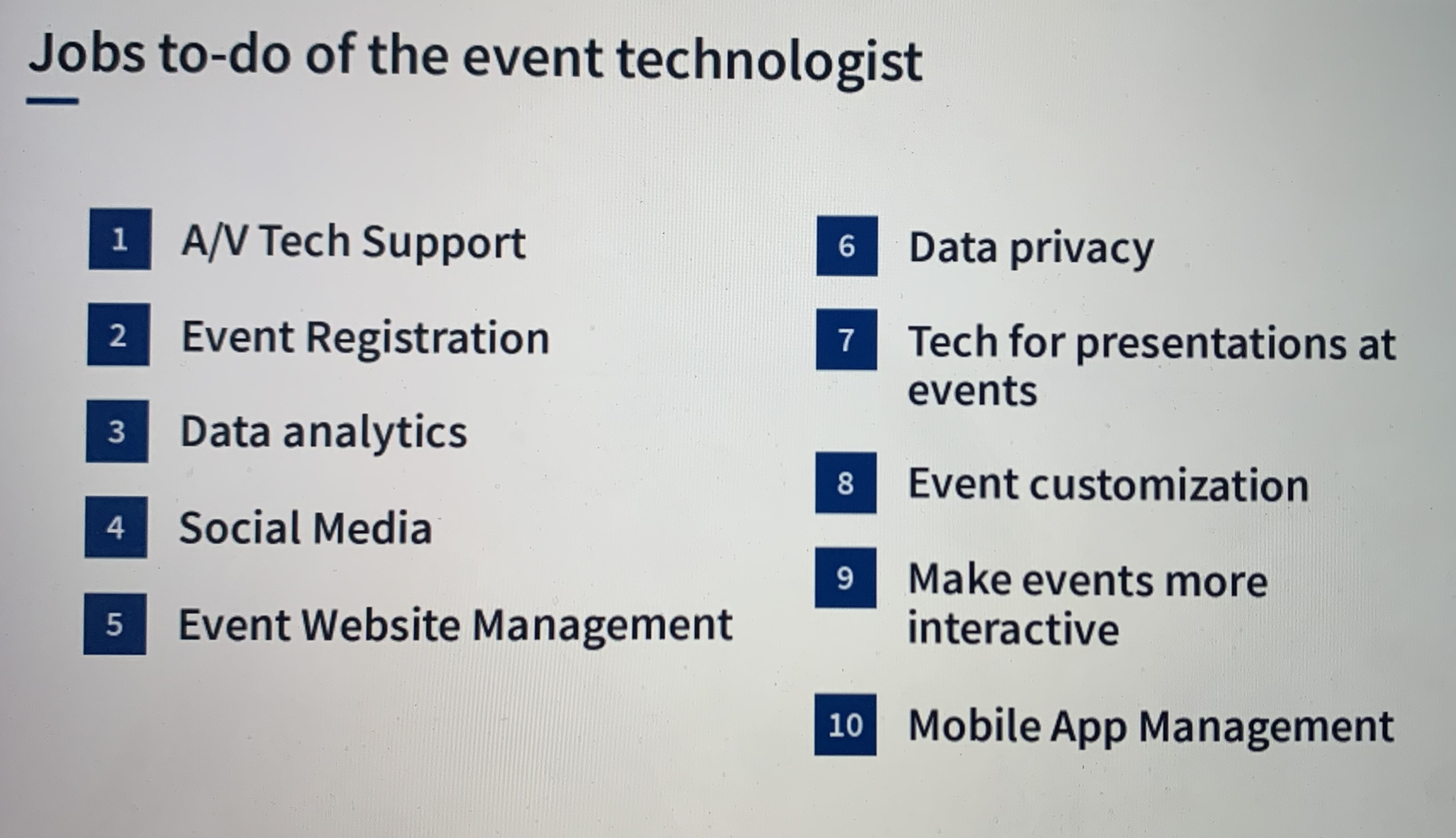Although the Covid pandemic is firmly in the rear-view mirror, the waves it created across the business-events industry will be permanent. A far greater reliance on technology has come to the meeting-planning task, producing a new role that many planners don’t realize has an actual name: event technologist.
During a late March webinar hosted by MeetingsNet, Taylor Bohn, event technology lead for meetings and events at Cvent, presented the responsibilities that event technologists have along with the benefits they provide to their planning colleagues, the event host, and attendees.
First, the job “is far beyond building registration pages online, developing event apps, and other basic stuff,” she noted. “Integrating technology that supports the long-term business objectives your meetings must achieve is the job. As a result, you need a tight connection to the I.T., sales, and marketing departments. You are a shared service for reaching different objectives, and you must routinely evaluate and recommend technology experiences” to improve meetings both logistically and strategically.

 In fact, Bohn (in photo) said that one question event technologists must make sure to ask regularly is, “why are we doing what we’re doing with a particular technology tool—are we using it in a way that’s getting us what we really want? And sometimes, we have to ask a larger question: Do we need to have this meeting in person, or could technology meet our objectives well enough at much lower cost?”
In fact, Bohn (in photo) said that one question event technologists must make sure to ask regularly is, “why are we doing what we’re doing with a particular technology tool—are we using it in a way that’s getting us what we really want? And sometimes, we have to ask a larger question: Do we need to have this meeting in person, or could technology meet our objectives well enough at much lower cost?”
The two top challenges faced by event technologists, according to Cvent research, is a poorly defined job description and a lack of decision-making authority. The solution, said Bohn, is to sell the role to higher-ups in terms they understand. “The first thing executives ask is, ‘Why can’t our planners just do this stuff for their own events?’” she noted. “The answer is that for some low-complexity events, they can do it. But for higher-complexity events" with significant ROI or financial implications, "you need an event technologist.”
Bohn’s advice: “Come to the table with opportunities that you intend on addressing with technology. Take a shot at implementing something you have researched.” And even among other planners, “don’t be afraid to chime into existing conversations when you have information to back you up. Once you prove your value, people from all sides are going to start coming to you for guidance.”
On that note, Bohn strongly recommended that aspiring event technologists become well versed in the rapidly growing role of artificial intelligence across various elements of meeting planning, including content development for marketing campaigns as well as for educational sessions.
Near the end of the presentation, Bohn talked about the ways that those who want to be fully committed event technologists can market themselves through LinkedIn and other channels to land a permanent internal role, or to work as a consultant on a project basis for different organizations.
Watch the 60-minute webinar here and earn one CE credit towards the Certified Meeting Professional designation.





